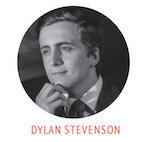

Scholastic wanted to know: What do Notre Dame’s College Democrats and Republicans think of Trump’s victory? We spoke to Jack Grogan — secretary of the Notre Dame College Democrats, and a sophomore political science major living in Zahm Hall — and Dylan Stevenson — vice president of the Notre Dame College Republicans, and a senior economics and history double major living in Dillon Hall. Our conversation, conducted via email and lightly edited, is below.
JG: I think economic anxiety and xenophobia were big factors in Trump’s success, but in the end, this campaign was not about the issues. I think a lot of us thought that this campaign would be a referendum on the personality of Donald Trump. It ended up being a fairly straightforward partisan battle. 90 percent of Republicans voted for Trump and 89 percent of Democrats voted for Clinton, according to exit polls [conducted by Edison Research for the National Election Pool]. So in the end, this campaign came down to voter mobilization in key swing states that ended up tipping the Electoral College.What was the most important issue this election?
DS: The single most important issue this election can be summed up in one word: jobs. Almost all other major issues boil down to that one word — whether it was a tax code that stifled job creation, an Obamacare regulation that killed jobs, trade deals that sent jobs overseas or an immigration policy that brought in unskilled workers, increasing competition for low skill jobs — we see a consistent common denominator.
What was Trump’s biggest weakness? What was his biggest strength?
JG: Trump’s unstable temperament (see his 3 a.m. tweet storms), and derogatory rhetoric were his biggest weaknesses. His outsider status and ability to channel economic anxieties into electoral support were his biggest strengths.
DS: His biggest weakness was his personality, without a doubt. His strange desire to start Twitter wars with anyone who insulted him made him seem childish and unstable. His biggest strength was his outsider status. In an election where people wanted change, he was able to present himself as untainted by the cesspool of Washington, D.C., and that appealed to people fed up with its corruption.
What was Clinton’s biggest weakness? What was her biggest strength?
JG: I think her role in the establishment was both her biggest strength and weakness. On the one hand, she was far and away the most qualified candidate. On the other hand, this was a year for anti-establishment candidates. Clinton struggled to articulate a vision for the future that was distinct from her message that Trump was dangerous.
DS: Her biggest weakness was the fact that she is, in many ways, the embodiment of the corruption that Donald Trump railed against. Whether it was pay for play accusations, the private server or speeches to Wall Street, she seemed slimy and untrustworthy. Her biggest strength was that she was able to present herself as a sensible alternative to Trump. She was able to market herself as an adult compared to Trump’s bizarre and adolescent nature.
What are your hopes, fears and expectations for the next four years?
JG: I hope that Donald Trump strikes a conciliatory tone and seeks compromise over the next four years. I am afraid because of the early reports about potential cabinet officials. There is a strong chance that a climate change denier will head the EPA and he has already confirmed the appointment of a white nationalist (Steve Bannon) as chief strategist. I expect attempts to roll back protections for immigrants, the closing of our borders to vulnerable refugees, and severe attempts at protectionism in trade. I fear that our country will forget its strong tradition of welcoming the stranger and will instead turn inward towards four more years of partisan infighting.
DS: Put simply, it is both my hope and my expectation that Donald Trump actually enacts the policies on which he campaigned. I’d like to see him nominate conservative Supreme Court justices, protect the Second Amendment, restore American manufacturing, unleash American energy from excessive environmental regulation, rewrite the tax code and lower taxes, secure the border and take on radical Islamic terrorism. While he might have been an interesting character on the campaign trail to say the least, his policy proposals were pretty bloody good. He won a mandate on those proposals, and he should use it to bring about the change this country so desperately needs. My fear is that a foul mix of the quagmire of Washington D.C. and the leftism of the mainstream media will cause him to either backtrack on some of these policies or dilute them, thereby reducing their effectiveness. He needs to do what he promised he would, but his love of making deals might prevent that.
What do you think about Clinton’s emails?
JG: There is no question Secretary Clinton made a mistake in having a private email server. Although it’s easy to blame the media, I do think they blew the issue out of proportion. While it is true that some classified material was sent over the server, the FBI’s investigation twice concluded no criminal wrongdoing. It is a shame that this mistake helped contribute to declining public trust in her candidacy and her eventual defeat.
DS: Hillary Clinton’s use of a private server put American lives and national security at risk. She lied about doing it, she lied about receiving classified information on it, she lied about turning over all the emails in question, and she lied about her motivations. Hillary Clinton’s private server is perhaps the best demonstration of either the depth of her corruption, or the extent of her ludicrous ineptitude, both of which disqualify her from office.
What do you think about Trump’s lewd conversation on the set of Access Hollywood in 2005?
JG: I thought his language was disqualifying. The fact that it wasn’t is further proof of the incredibly high tolerance many Americans appear to have had for Donald Trump’s personal failings. It sets a horrible example for future generations that someone can get elected, despite using such horrific and derogatory language about women. Describing the comments as “locker room talk” only further legitimizes this disgusting behavior.
DS: It was vile.
Why did Trump win?
JG: Trump won because he concentrated on Midwestern swing states and inspired enough voters to win a majority in the Electoral College. His outsider status and provocative language helped inspire the working class and the conservative base. At the end of the day, Clinton won the popular vote by about 2 million votes but we all know it comes down to swing states. Trump and the RNC did a good job of channeling the anti-establishment feelings of many voters into votes in those states.
DS: Trump won because the policies of the Democratic Party have been a catastrophic and unmitigated failure on every front. He ran on a platform of undoing the damages from their economic policy which has stifled growth, their trade policy which supports Democratic donors at the expense of the American worker, their foreign policy that has made us less safe at home and less respected abroad, their environmental policy that puts a self righteous eco-socialistic crusade before the needs of ordinary Americans, and many more. Eight years of Democratic rule has been a colossal disaster; the American people woke up to that and voted for a change. The fact that Hillary Clinton has all the charisma of a damp rag also helped.
What is the most important takeaway for students at Notre Dame?
JG: If the election had only involved 18-29 year old voters, Clinton would have won a resounding victory. However, millennials did not turn out at a high rate. Notre Dame students of all political persuasions should seek to get more engaged in politics. There are local campaigns in South Bend that always need volunteers and I encourage everyone (but especially those who were disappointed with the results) to channel their feelings into action and sustained political engagement.
DS: If there was ever a time to get involved in politics and political activism, it’s now. Be engaged, support the good of this administration and work against the bad, but get involved.
Anything either of you would like to add?
DS: The nation has a new president, time to Make America Great Again.